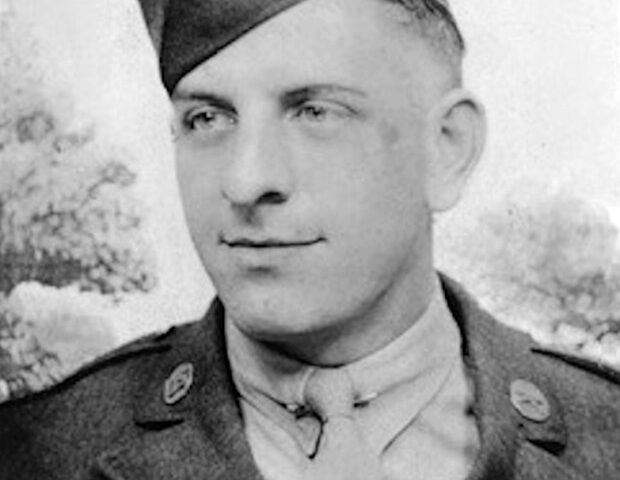After talking to Nancy Polizzi of Montgomery, I can see why her co-workers in Labor and Delivery at Northwestern Medicine Central DuPage Hospital nicknamed her “the Energizer Bunny.”
When I first caught up with her by phone on Thursday, she had just finished physical therapy for a back issue on this, her day off, and was running an errand for a friend before tackling her own to-do list.
But it was when she had a chance to slow down for a moment to narrate her comeback from two life-threatening illnesses that I fully appreciated how the indomitable spirit of this 62-year-old single mom and grandmother represents all the men and women we are honoring during National Nurses Week, which begins Monday.
Polizzi has been in this critical but often underappreciated profession for 20 years, 17 of those helping bring babies into the world at the Winfield hospital. But this story really begins in October of 2008, the day after her older sister Karen, a breast cancer survivor, died of ovarian cancer.
That’s also the day she was told the biopsy taken after her own mammogram had come back malignant.
According to Polizzi, who like her sister was a carrier of the BRCA inherited gene mutation that greatly increases risk of several types of cancer, the hardest part was telling her mother the news. But to her surprise, “Mom took it better than I’d anticipated” because “she knew I put my trust in the health care system.”
Polizzi also places her fate in the hands of God. And she possesses a natural optimism that, coupled with a “just-do-it” attitude, helped her through grueling rounds of chemo, a double mastectomy and a hysterectomy that included the removal of fallopian tubes and ovaries.
The BRCA gene meant “it all had to come out,” she told me. “My kids were counting on me and I wanted to see my grandkids grow up.”
The “Energizer Bunny” was back to work in six months. But seven years later Polizzi got hit with another whammy that required another whole round of trust in God, the health care system and herself.
“Out of the blue” in 2015 she began experiencing shortness of breath. When tests showed the left ventricle of her heart had stopped pumping effectively – likely the result of the chemotherapy from the breast cancer – Polizzi went on medications that helped keep the heart going.
Until the “light switch went off” a few years later.
In October of 2020, Polizzi had reached end-stage heart failure. By that time, she was “too sick” to deny how bad her health had become. A transplant was necessary. But until a suitable donor could be found, she immediately underwent surgery for an LVAD (left ventricular assist device), a mechanical pump attached to the heart and connected via wires through the abdomen to a battery that must be close to her side and charged 24/7.
Wearing baggy scrubs to hide the device, Polizzi continued working, grateful for the “huge difference” the LVAD made. But depending on a machine to stay alive was not only “scary,” it dramatically curtailed her activities, even making taking a simple shower an hour-long task.
And so, when she got the call on Dec. 26, 2021, from Northwestern Memorial Hospital that a donor heart was available, any fatigue she felt after working a 12-hour shift was replaced by pure adrenalin. Which turned out to be a good thing.
COVID-19 had certainly added to the medical challenges Polizzi faced during this time in her life and it continued to do so when she realized she’d have to drive herself to Northwestern for the transplant because all three of her grown children and their families were dealing with the virus.
Because son Dan Polizzi, an Aurora firefighter and paramedic, was worried his mom might fall asleep, he stayed on the phone with her the entire way as she drove into Chicago at 1 a.m. through a heavy downpour of rain.
When a still-energized Polizzi walked into the quiet middle-of-the-night hospital alone with a backpack and overnight bag, one on each shoulder, the intake person had a hard time believing she was the patient. But as unusual as this adventure began, the surgery itself was uneventful, she noted. In fact, Polizzi was out of the hospital in 10 days and back at work at Central DuPage five months later with her new heart and same old can-do attitude.
“Nancy’s strength and desire to help others is truly an inspiration,” said her manager at Central DuPage Katie Marti. “Through the challenging days, she always finds a way to stay positive, face the day and move ahead.”
“I guess part of my personality is to take on a challenge, try to research how to attack it and then do it,” said Polizzi, who is convinced that dwelling on the positive is always going to help in the healing process.
When I asked which of her two medical battles proved to be the hardest, her answer was immediate – and not so surprising.
“I feel the breast cancer was difficult because it was my first journey,” she concluded, adding that each challenge thereafter “I was able to lean more on God and have comfort in it.”
dcrosby@tribpub.com




